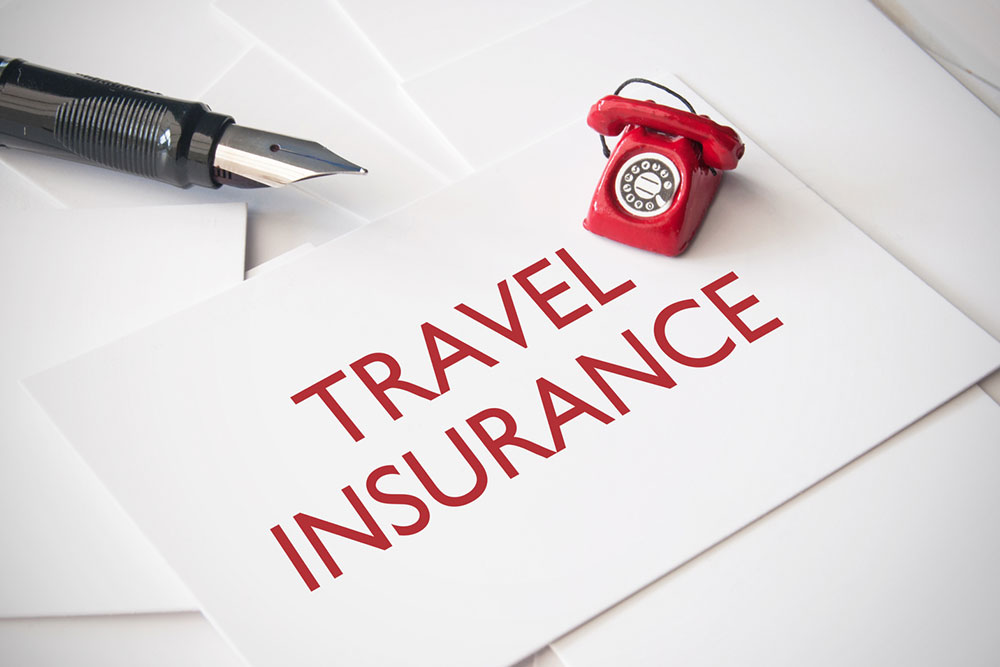8 insurance mistakes to avoid while traveling abroad

A vacation is a great way to relax, but to ensure that the trip is entirely stress-free, one should buy travel insurance. This is crucial, especially if vacationing abroad, because while existing insurance may cover domestic travel-related issues, the policy may be invalid abroad. Also, it is equally important to find an insurance policy that adequately covers health and other issues while traveling abroad. To do that, one must avoid certain mistakes while buying insurance.
1. Waiting till the last minute
The most common mistake when planning an overseas trip is waiting till the last minute to buy insurance. When one gets travel insurance closer to the trip, they are likely to not have enough time to find the ideal option. For instance, one might have to settle for a plan that does not come with cancellation coverage, as one would be purchasing the policy a few hours before their flight. Also, last-minute travel insurance may not offer coverage for issues on trips caused by pre-existing health conditions. While buying earlier might not mean better coverage, it does give one enough time to shop around for the best options as per their preferences.
2. Buying insurance on the trip
If one has forgotten to buy travel insurance before the trip and do it while they are already abroad, the policy they get might be void, and one might not be able to make any claims. In this situation, one has limited options. For instance, one can buy special post-departure travel insurance, which could offer similar coverage as standard travel insurance. However, this type of coverage can be expensive and is only offered by a small number of companies and could be a lot more expensive. Also, following the purchase, one might have to wait 1–3 days before the policy is activated. While this is an anti-fraud measure introduced by insurers to stop one from buying a policy after encountering a problem, the wait time might be problematic for those who forget to buy the policy in advance.
3. Not considering the destination
While one can easily find several comprehensive insurance plans, not all of them would be apt for their destination. Each destination comes with unique risks that the insurance plan must cover. For instance, if one is traveling to a tropical country, one should consider purchasing a travel insurance plan that covers tropical diseases. If one is traveling to places with a high crime rate, a policy that covers personal liability and theft might be the best choice.
4. Not considering available healthcare
While buying travel insurance, one must consider the level of healthcare available in the country they are visiting. Some countries can offer vastly different healthcare, and one might need to evacuate to another country for treatment. So, one must pick a policy that covers emergency healthcare evacuation if they need to be transported to a different country for treatment.
5. Overlooking trip cancellation insurance terms
While many travel insurance policies cover trip cancellations, they may have different definitions for what counts as a cancellation. Organize. Some may cover trip cancellations for specific reasons, like illness or the demise of a loved one. Some others may cover cancellation costs to an extent. So, one must review the terms of the policy on cancellation to avoid unwanted surprises at the time of making a claim.
6. Not reading the fine print
An insurance policy might look good on the surface, but its terms and conditions could make it very limited in scope. So, not reading the fine print before buying travel insurance would make one miss crucial terms regarding coverage limits and exclusions, such as pre-existing conditions and adventure sports. One must properly understand how a policy works and what it covers before signing up for it.
7. Failing to disclose health conditions
Another common mistake to avoid is not being transparent about health conditions while buying insurance. While one might be tempted to reduce the cost of premiums by not disclosing an existing medical condition, this mistake can result in the travel policy being invalidated. Insurance providers can figure out if a medical issue on the trip is triggered by an undisclosed existing health issue and deny the claim or revoke the policy. Then, one will have to cover the cost of all healthcare expenses on the trip, which could amount to thousands of dollars. So, one should always be transparent about health conditions while buying a travel insurance policy.
8. Going beyond policy limits
On vacation, one might want to participate in various activities, like spending a day at the beach, trekking, paragliding, or snorkeling. However, one must remember that a standard travel insurance plan does not cover all these activities. Though a policy may cover a range of sports and leisure activities, such as cycling, diving, or kayaking, it might not cover high-risk sports like skiing. An insurer may offer coverage for such activities at a cost as an add-on. One should also note that trekking and hiking might not be covered under the policy if they are the sole purpose of the trip. This is because long-distance walks to remote areas and going to high altitudes increase the probability of requiring urgent healthcare assistance, such as an air ambulance. That’s why, while planning adventure holidays abroad, one needs to look for policies that cover the activities one wants to try on the trip.







